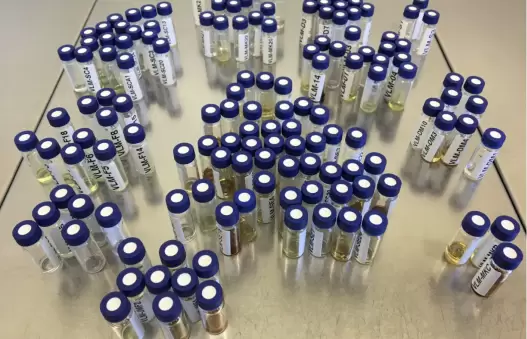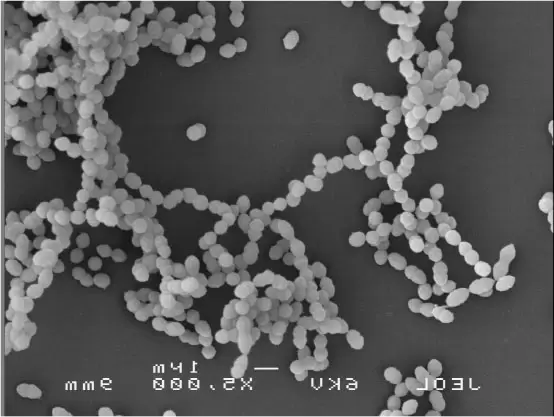Microbiological Risks and Resistance to Antibiotics
The research carried out in the thematic field "Microbiological Risks and Resistance to Antibiotics" of the UR CBSA aims to understand bacteria linked risks, associated with their host or environment.
A first axe of research focuses on the mechanisms by which commensal bacteria become pathogenic (sometimes independently of their virulence factors), in particular through biotic or abiotic interactions they have with their direct environment.
A second axis aims to study the use of bacteria as a sensor of environmental risks through the study of the impact of environmental pollution on their physiology and virulence.
Risk associated with the host
Enterococci are pathobionts for which understanding the commensalism-opportunism transition is essential, which would enable to better understand infections (often nosocomial) due to these microorganisms.
In this context, our team studies how the metabolism and oxidative stress of enterococci can impact their colonization abilities, their virulence and their antibiotic resistance, but also influence the health of the host, and how host signals can promote bacterial virulence. This line of research is linked to the thematic field "Communication in the human microbiota".
Our research also aims to find new therapeutic targets allowing the development of new treatments against resistant bacteria (anti-virulence and/or anti-resistance molecules), in connection with the thematic field “Anti-infectious strategies”.


Risques liés à l’environnement
Concerning air-related risks, our team studies the impact of environmental pollution (from cars such as NOx; UV) on environmental airborne bacteria, and also on pathogenic bacteria (in connection with the thematic field “Envelope and sensors” developed in our unit).
Our models are used to assess the impact of soot and atmospheres produced during accidents such as the Lubrizol industrial chemical disaster that occurred in Rouen in September 2019. Bacterial viability is thus a biosensor that allows us to assess the risks due to environmental pollution.
We are also studying the impact of nanoparticles found in manufactured products on the microbiota, and risks on host health.
Finally, we use antibioresistant bacteria found in the environment such as rivers to trace the dissemination sources (at the origin of the problem of resistance genes transmission) to develop a diagnostic tool in order to monitor bacterial contamination.
